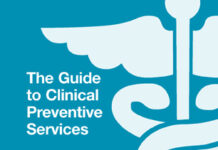Researchers Explore the Relationship Between Religiosity and Psychotic Experiences
Individuals who identify as religious may be more likely to have symptoms associated with psychosis.
Researchers Identify Demographic, Ideological Factors Associated With Refugee Prejudice
A new analysis finds multiple antecedents of refugee prejudice, including religiousness, conservatism, and education.
Study Finds Deteriorating Mental Health Among Poor White Americans
Researchers find evidence of low socio-economic status White Americans’ rising distress and declining well-being since the mid-1990s.
Patient Race Associated with Varied Psychiatric Treatment Experiences
Findings point to association between race and the mental health care experiences of African-American and White veterans.
More to Happiness Than Feeling Good, Study Finds
Cross-cultural data suggest that happiness involves feeling the emotions one deems as right, in accordance with personal and cultural values.
VA Hospitals Perform Worst on Inpatient Psychiatric Care
The results of the cross-sectional study show that U.S. Department of Veterans Affairs (VA) owned hospitals perform worst on most measures.
More Research Needed on Climate Change-Related Ecological Grief
Researchers outline the concept of ecologically driven grief due to climate change and recommend future research to better understand the psychological impact of climate change.
Understanding Psychosis and Schizophrenia? What About Black People?
In many respects it is difficult to fault the report Understanding Psychosis and Schizophrenia, recently published by the British Psychological Society (BPS) and the Division of Clinical Psychology (DCP)[i]; indeed, as recent posts on Mad in America have observed, there is much to admire in it. Whilst not overtly attacking biomedical interpretations of psychosis, it rightly draws attention to the limitations and problems of this model, and points instead to the importance of contexts of adversity, oppression and abuse in understanding psychosis. But the report makes only scant, fleeting references to the role of cultural differences and the complex relationships that are apparent between such differences and individual experiences of psychosis.
Child Poverty Linked to Early Neurological Impairment
A new NIH-funded study suggests that children from low-income environments are more likely to have neurological impairments. The researchers claim that these neurodevelopmental issues are “distinct from the risk of cognitive and emotional delays known to accompany early-life poverty.”
Screen Time Linked to Increased Depressive Symptoms Among Teens
New study examines how increased screen time and social media may be contributing to depressive symptoms and suicide risk in teens
Food Insecurity Linked to Mental Health Globally
Global analysis of 149 countries finds food insecurity is associated with poorer mental health.
Ethical Failings in Experimental Drug Safety Trials
Leading human subjects ethics researcher questions exploitation of uninsured minorities in experimental drug trials.
Increasing Prevalence of Mood Disorders Among Teens and Young Adults
Depression, serious psychological distress, and suicide attempts have risen substantially since the early 2000s among young adults – what’s changed?
Experts Concerned That Depression Screening Will Lead to Overdiagnosis
Behind the U.S. task force recommendation to screen all children and adults for depression.
New Review Suggests Higher Recovery and Remission Rates for Psychosis
Meta-analysis gives updated recovery and remission rates for persons identified as having a first-episode psychosis and those diagnosed with schizophrenia.
Loneliness as Lethal: Researchers Name Social Isolation a ‘Public Health Threat’
Researchers present loneliness as a health threat facing a growing number of Americans.
America’s Opioid Crisis Proves the Limits of Capitalism
In this piece for RT, Slavoj Žižek discusses the impact of capitalism on America's opioid crisis, exploring the factors that have driven people to use drugs...
Debate Ensues Over Rights-Based Approach to Mental Health
Debate ensues as scholars and policymakers discuss how to bring a rights-based approach to mental health policy.
United Nations Rep Brings Attention to Human Rights Violations in Psychiatry
Dr. Dainius Pūras argues that the status quo in mental health treatment is no longer acceptable and demands political action to promote human rights.
Current Immigration Policies Create Mental Health Vulnerabilities for Families
Researchers investigate the impact of immigration policies on the mental health of arriving Mexican and Central American immigrants.
Mental Health Apps May Lead to Overdiagnosis, Study Finds
A new study finds that mental health apps promote a one-dimensional view of mental health.
Connections Between Climate Change Concerns, Mental Health, and Pro-Environmental Actions
Concerns about the impact of climate change on animals and nature results in more effective coping to reduce hopelessness about climate change and promotes pro-environmental behaviors.
Depression Discrimination More Severe in High Income Countries
According to a study published in this month’s British Journal of Psychiatry, people diagnosed with depression in high-income countries are more likely to limit...
Implications of the Trans-Pacific Partnership Agreement on Equitable Access to Healthcare
A new generation of multilateral and bilateral trade agreements is likely to significantly threaten access and cost of healthcare, and limit signatory Governments sovereignty to prioritise health care policy to protect and improve the health of citizens. The Trans Pacific Partnership Agreement (TPPA), a Pacific Rim regional trade agreement involving 12 countries — including New Zealand, Australia and the US — is one such agreement, and it has the potential to significantly alter the domestic environment for health policy-making.
Researchers Make Recommendations to Improve FDA Transparency
Organizations, advocates, scholars, and practitioners had a chance to give feedback regarding FDA processes.






























